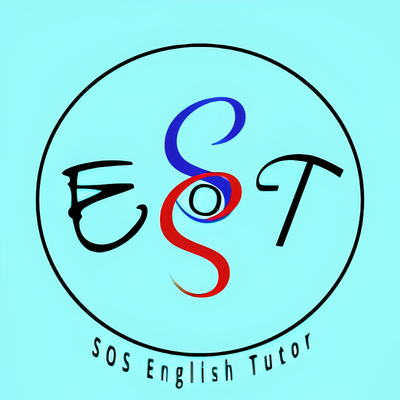10 tips from the experts!
Tip 1: Don’t memorise answers
Don’t memorise answers, especially in Part 1. Memorised answers won’t accurately determine your English-language skills that may influence your final band score. Examiners are trained to look out for this.
Tip 2: Don’t use big and unfamiliar words
Impressing with big and complex words may sound like a good idea, but only use if you are familiar with them. The more the difficulty of the words, the higher chance of making mistakes by either mispronouncing words or using them in the wrong context.
Use a range of vocabulary relevant to the topic being discussed. Look at the topics in Tip 10, and practice using vocabulary lists using words and phrases connected to these topic areas.
Tip 3: Use a range of grammatical structures
When IELTS examiners assess your speaking skills, they mark you against the following assessment criteria:
- Fluency and coherence
- Lexical resource
- Grammatical range and accuracy
- Pronunciation
Use a range of grammatical structures using simple, compound, complex and complex-compound sentences. The more you practice, the more you will know your own errors. Practice speaking with friends in English, chat online or record yourself. Correct your errors.
Also, it’s important to practise speaking about the past, the present and the future verb tenses correctly; this includes the simple, continuous/progressive, perfect simple and the perfect continuous/progressive.
Tip 4: Don’t worry about your accent
With a face-to-face Speaking test, the IELTS examiner is trained to understand a wide range of accents. Examiners understand what you say, regardless your accent. If you can communicate well, do not worry about your accent. Most English speakers in the world speak English not as a first language. However, be aware of sounds that you have difficulty with; use stress and intonation as English is a stress-timed language. Practice, practice and practice some more!
Tip 5: Pause to think
Taking a brief pause to think about what to say before answering difficult questions is a good strategy! This is called “hesitation devices”. We use them all the time as native English speakers. You should too! We use to process questions and take time to think before answering without the dreaded silence while waiting. You can use phrases to give you time to think during the Speaking test – phrases such as:
- That’s an interesting question
- I have never thought about that, but…
- Let me see
- Good/great question!
- That’s a difficult question, but I’ll try and answer it
- Well, some people say that is the case, however I think…
- Let me think about that for a minute
Tip 6: Avoid using fillers
Speak confidently and avoid using filler words. Generally fillers are used when we don’t know what to say. However, this shows the examiner that you can’t access the correct language or ideas. Therefore, it’s important to avoid them and to use the phrases we gave you in Tip 5.
Caveat: Using filler words is sometimes is fine, but do use as a habit.
Avoid the following fillers:
- Like
- You know
- Umm…
- Ahh…
- Ehh…
- Well
- Yeah…
Tip 7: Extend your answers
Try and answer the examiner’s questions in full, completed sentences. It is easy to do by starting your answer by repeating the examiner’s question, then using hesitation devices. Don’t wait for the examiner to prompt you with a question. The more questions, the more difficult the test. With short answers, the examiner knows you cannot talk in detail about a topic. If the examiner says ‘Why?’, they are prompting you to give a reason for your answer and to extend your answer. So, answer just like answering open questions (why, where, who, how, when, what, which, etc.).
Tip 8: Smiling helps pronunciation
Smiling can help calm your nerves, which helps your pronunciation. When you smile, the other person is prompted to smile too! Also, smiling is a way to indicate that you want to be liked. Make sure to pronounce clearly, opening your mouth wide enough so that sounds come out clearly. Smiling causes our mouth to be bigger friendlier. Using clear enunciation and tone will show the examiner you can use a wide range of pronunciation.
Tip 9: Don’t speak in a monotone
Sometimes when we speak, we produce a flat sound, a monotone, with little variation. This sounds like a computer talking and results in your interview sounding boring, not just for you, but for the listener (the examiner) as well. Emphasize certain words, and pause/think/hesitation devices at certain sections of your answer. This will make your conversation with the examiner more engaging and natural. When we emphasize certain words, it makes it easier to compare and contrast ideas by stressing key words. It also increases the flow of conversation, so remember:
- Don’t speak in a monotone
- Vary the stress and intonation to add emphasis
- Use your hands to gesture and help the rhythm of the conversation
Tip 10 – Practice common IELTS topics
Part 2 of the IELTS Speaking test requires you to speak on a given topic for up to 2 minutes. Practice common IELTS topics with friends, students, family, tutors or colleagues to improve and to learn vocabulary associated with each topic.
Common topics you can practice for the Speaking test include:
- Tourism and travel
- Education
- Transport
- Environment
- Family life
- Sport and recreation
- Crime and punishment
- The internet
- Advertising and retail
Combine these 10 tips to build up your confidence!
Practice makes perfect, so with a lot of practice you will get the band score you need in your IELTS Speaking test.
If you need help or for inquiries, please contact us.








